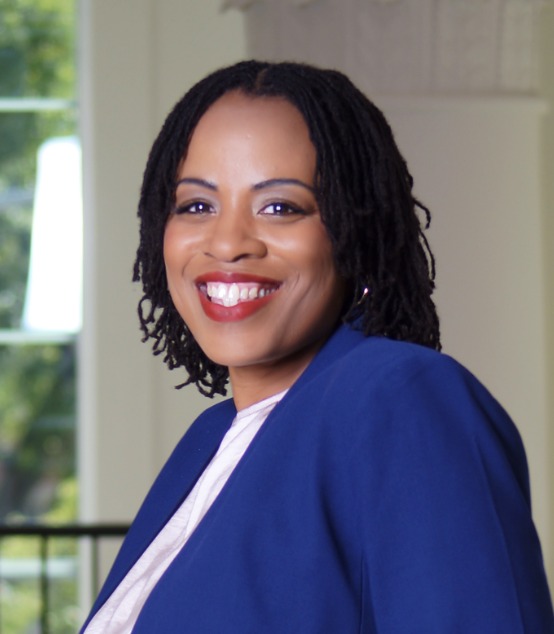By: Jordan Meadows
Staff Writer
Sherita Walton, a seasoned attorney and public servant with more than two decades of experience across public and private sectors, has officially launched her campaign for Wake County District Attorney.
 Walton, a former prosecutor and defender, and now a legal advisor to the Raleigh Police Department, joins a growing field of candidates aiming to succeed current Wake County District Attorney Lorrin Freeman, who is not seeking reelection in 2026. Freeman has publicly endorsed Walton, calling her “impressive” and praising her “diverse experience”.
Walton, a former prosecutor and defender, and now a legal advisor to the Raleigh Police Department, joins a growing field of candidates aiming to succeed current Wake County District Attorney Lorrin Freeman, who is not seeking reelection in 2026. Freeman has publicly endorsed Walton, calling her “impressive” and praising her “diverse experience”.
Walton, 47, grew up in Brooklyn, New York, and is a first-generation college and law school graduate. She earned her undergraduate degree from Binghamton University and her law degree from Pace University in White Plains, NY. She began her legal career in private practice and later became a prosecutor in Manhattan before moving to Wake County in 2016 with her husband and two children.
In Wake County, Walton spent five years in the District Attorney’s Office under Freeman, where she prosecuted a range of cases, including violent crime. In 2021, she transitioned to the City of Raleigh’s legal department, where she advises the police department on high-stakes matters, including critical incidents and public records requests for law enforcement video.
“Those skills are very helpful, and I’ve been able to sharpen what I think I’ll be needing in this role if elected by being directly involved with the police department,” Walton said.
Walton said she didn’t initially plan to run for DA. That changed after a shoutout and subsequent lunch with Freeman, who listed her as a possible choice for the role.
That call to service was also influenced by the events of 2020, during the COVID-19 pandemic and a national reckoning around policing and racial justice.
“I really felt like I needed to be doing something else, beyond the case file that was in front of me,” Walton said. “I said, ‘Where can I make a meaningful impact here?’ And given what’s happening in terms of the tensions between policing and communities of color, it made sense to go into a police agency.”
Her current role, she clarified, is not as a litigator nor as a representative of individual officers. Instead, she provides in-house legal counsel to multiple departments within the city, working to ensure citywide compliance with legal standards and community values.
“The role is about protecting the city of Raleigh, the community, as a whole—not any individual department,” Walton said.
If elected, Walton said her first priority as district attorney would be to focus on crimes that threaten public safety, particularly violent offenses and sexual assaults. She also wants to lead with integrity and compassion, ensuring that both victims and defendants understand how they should be treated within the justice system.
Her platform emphasizes transparency, public trust, and community engagement. Walton said the DA’s office has historically lacked a clearly defined vision and sees an opportunity to change that.
“There should be a collective mission for everyone in the office: objectives to memorialize so the community knows what we’re striving for, so everyone knows what we’re doing in the office, and then the community can then hold us accountable for acting outside of that,” she said. “Wake County houses the capital city: we should be the premier DA’s office. We can do better in that area, we have the potential to do it.”
Walton said she hopes to connect with local organizations, attend community events, and create new paths for transparency that go beyond traditional methods.
“You can’t be connected with the community from inside your office… We can be creative enough where it shows that we are thinking through these issues.”
Some Black activist groups have expressed concern that Walton, due to her ties to law enforcement and Freeman may be too entrenched in the establishment. Walton acknowledges the skepticism but sees her insider experience as a strength.
“My experience has shown me that you can affect more; you have the ability to let your voice be heard if you’re in the room,” she said.
She also spoke about the broader need to rebuild public trust in institutions that have lost credibility with some communities.
“My journey of being a first-generation college graduate and law school graduate, all the things I’ve had to endure in my life, has been an uphill battle,” she said. “It’s difficult being in spaces where there’s not a lot of people who look like you, trying to assimilate but also trying to make sure people recognize who you are and what you bring to the table.”
Walton said her commitment to Wake County is deeply personal. After a decade living in the area, she considers it home and is ready to serve its people in a deeper capacity.